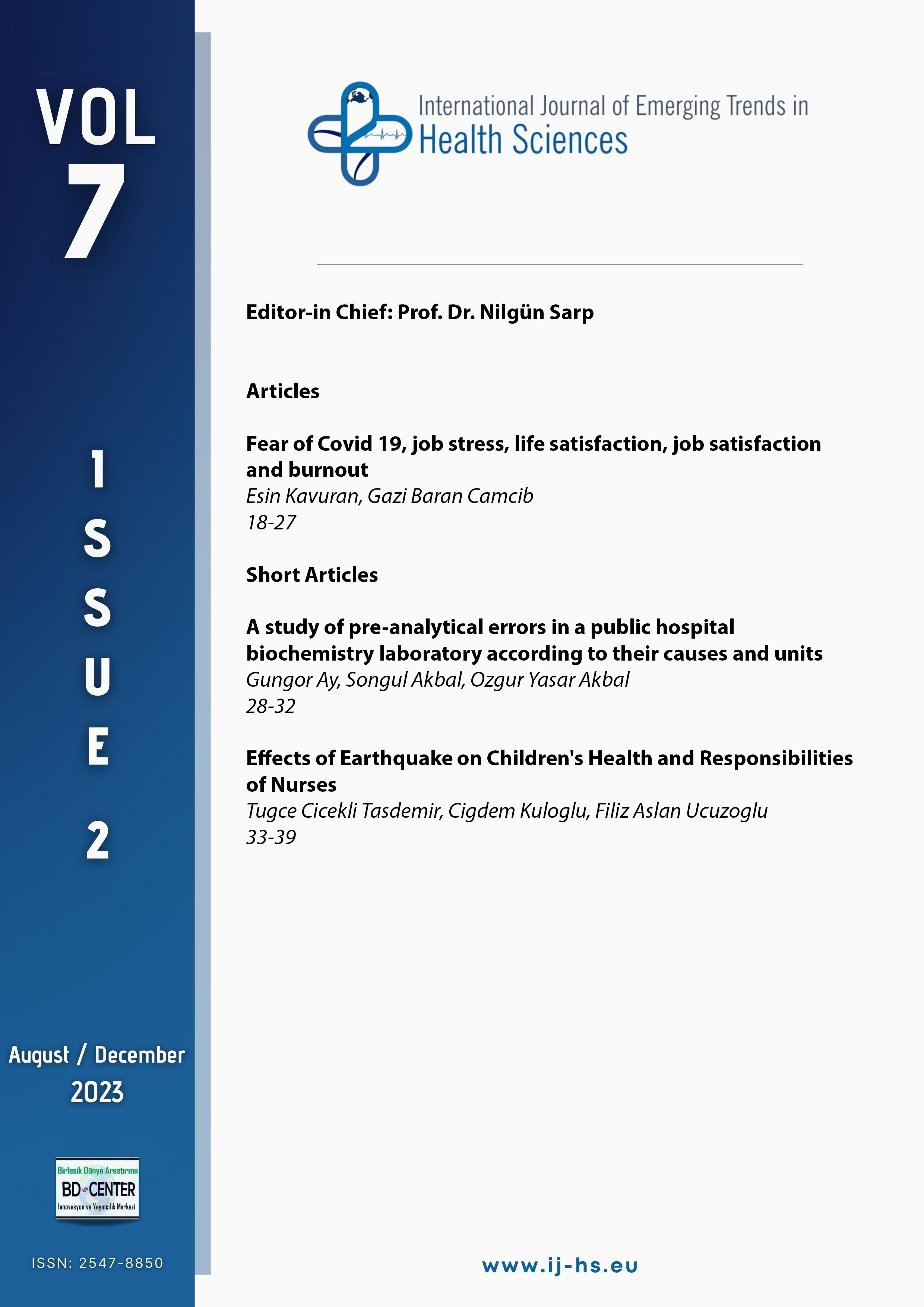A study of pre-analytical errors in a public hospital biochemistry laboratory according to their causes and units
Main Article Content
Abstract
The clinical laboratory is an important stakeholder in the patient management process with a direct impact on patient care by providing evidence and data for diagnosis and treatment. Identifying reliable quality indicators in clinical laboratories is an important step in enabling users to measure the quality of laboratory service. Any error in the pre-analytical process affects other processes and jeopardizes patient safety. This study aimed to examine the number of specimen rejections in clinical laboratories, their reasons, and their range according to the departments. The study was a descriptive retrospective study. The population of the study consisted of samples rejected from the Biochemistry Laboratory of a teaching and research hospital in 2021. Data were analyzed using percentage and frequency analysis. The study recommends that practices to minimize errors in the pre-analytical process should be carried out urgently by the management and a training plan for sample collection should established.
Keywords: Clot; hemolysis; patient safety; pre-analytical process; sample rejection.
Downloads
Article Details

This work is licensed under a Creative Commons Attribution-NonCommercial-NoDerivatives 4.0 International License.
Authors who publish with this journal agree to the following terms:
- Authors retain copyright and grant the journal right of first publication with the work simultaneously licensed under a Creative Commons Attribution License that allows others to share the work with an acknowledgement of the work's authorship and initial publication in this journal.
- Authors are able to enter into separate, additional contractual arrangements for the non-exclusive distribution of the journal's published version of the work (e.g., post it to an institutional repository or publish it in a book), with an acknowledgement of its initial publication in this journal.
- Authors are permitted and encouraged to post their work online (e.g., in institutional repositories or on their website) prior to and during the submission process, as it can lead to productive exchanges, as well as earlier and greater citation of published work (See The Effect of Open Access).
